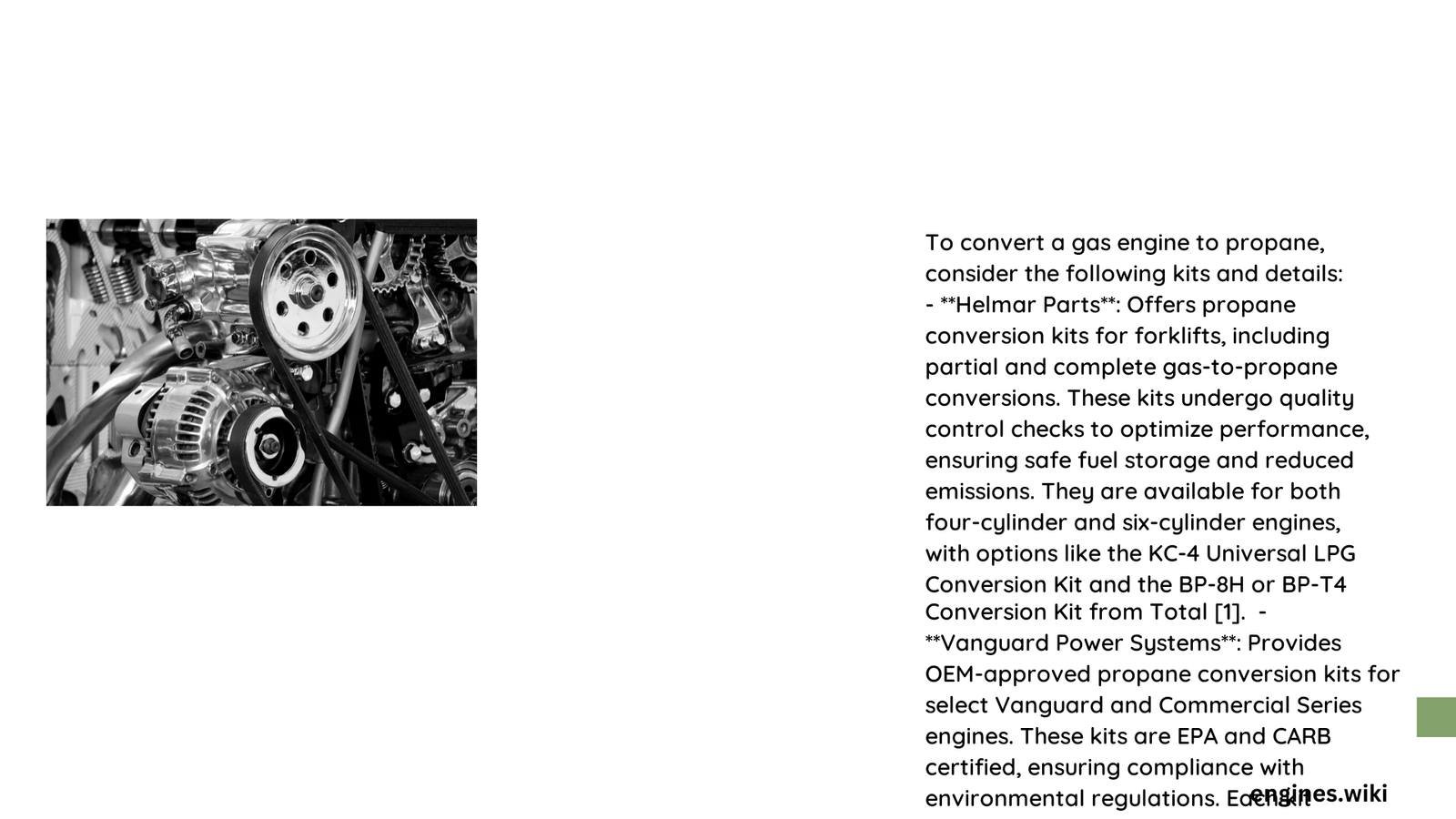Propane conversion kits offer a transformative solution for transforming traditional gasoline engines into efficient, environmentally friendly power sources. These specialized kits provide vehicle owners, industrial equipment managers, and homeowners with an opportunity to reduce fuel costs, minimize carbon emissions, and enhance overall engine performance through strategic modifications and component replacements.
What Are Propane Conversion Kits?
Propane conversion kits represent specialized equipment designed to modify existing gas-powered engines, enabling them to operate efficiently using propane as an alternative fuel source. These comprehensive packages include essential components necessary for seamless engine transformation across various applications.
What Components Comprise a Typical Propane Conversion Kit?
Vehicle Conversion Components
- High-pressure propane regulator
- Vapor-liquid mixer
- Specialized fuel lines
- Mounting brackets
- Electronic control systems
- Precision orifices
- Safety shut-off valves
Forklift Conversion Specifics
| Component | Function | Specification |
|---|---|---|
| Vapor Hose | Gas transmission | 5/8″ diameter |
| Regulator | Pressure control | Adjustable flow |
| Vaporizer | Liquid to gas conversion | Temperature-sensitive |
| Safety Shut-off | Emergency protection | Automatic trigger |
Why Convert to Propane?

What Economic Advantages Exist?
Propane conversion offers substantial economic benefits:
– 30-40% lower fuel costs compared to gasoline
– Reduced maintenance expenses
– Extended engine lifespan
– Potential tax incentives for alternative fuel usage
How Does Propane Impact Environmental Performance?
Propane engines demonstrate remarkable environmental advantages:
– 20% reduction in carbon monoxide emissions
– 15% decrease in carbon dioxide production
– Up to 60% lower hydrocarbon release
– Cleaner combustion process
What Installation Challenges Should You Anticipate?
How Complex Is the Conversion Process?
The conversion complexity varies depending on the specific application:
1. Automotive conversions: Moderate difficulty
2. Industrial equipment: High technical expertise required
3. Home appliances: Relatively straightforward
What Professional Skills Are Necessary?
Successful propane conversion demands:
– Advanced mechanical knowledge
– Understanding of fuel system dynamics
– Precision measurement capabilities
– Familiarity with safety protocols
What Performance Expectations Should You Have?
Can Propane Match Gasoline Engine Performance?
Performance comparisons reveal:
– Comparable horsepower output
– Slightly reduced torque capabilities
– More consistent fuel delivery
– Enhanced cold-start reliability
What Safety Considerations Matter?
How Can You Ensure Proper Conversion?
Critical safety recommendations include:
– Professional installation
– Regular system inspections
– Certified conversion kit selection
– Comprehensive leak testing
– Compliance with local regulations
Conclusion
Propane conversion kits represent a sophisticated solution for modernizing engine technology, offering economic, environmental, and performance advantages across multiple domains.
